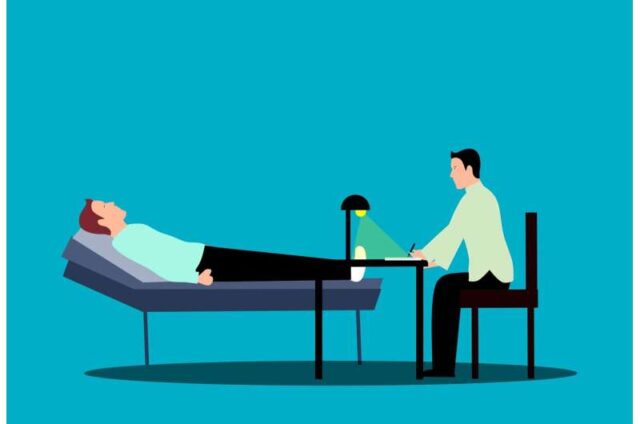One of the most common questions people have about EMDR therapy is, “will it work for me?” This question and its answer reveals many common misconceptions about what exactly EMDR therapy is, who it is for, and what one can expect. Here are 12 reasons to consider EMDR can be helpful and used as the method for resolving a past trauma that continues to impede your life’s forward progress.
Reduce Stress – Living with negative experiences and weighty emotions can contribute to an overwhelming amount of stress. It is well known that high levels of distress can contribute to significant physical, emotional, and mental problems. EMDR treatment seeks to resolve underlying experiences and negative belief systems that contribute to ongoing distress.
Change Behavior Patterns – Avoidance behaviors are symptoms of anxiety and trauma diagnosis. At times, these behavior patterns of avoidance can become extremely problematic to life. Some clients cannot drive, or avoid certain places or people, or perhaps cannot begin certain tasks. EMDR treatment seeks to address the underlying beliefs and reprocess experiences that have supported unhelpful behavior patterns. A shift in an underlying belief system, or a change in the processing of a negative event, can support significant behavior change.
Resolve Repeating Relationship Issues – Negative relationship patterns are sometimes attributed to negative experiences and unspoken messages about a person’s worthiness as a person, lovability, or role in a relationship. Exploring these previous abandonment experiences, trauma, or abuse can aid in a shift to more healthy belief formation.
Resolve Self-Sabotaging Behaviors – Past patterns of behaviors and interactions with the world become what feels familiar. Although these behaviors may not be comfortable, repeating what is familiar is knowable and can feel true. These ways of being are supported and confirmed by beliefs and experiences. The more frequently these are reinforced, the more true they appear. However, self-sabotaging behaviors are generally supported by negative experiences and false, negative beliefs. EMDR seeks to interrupt and reprocess these unhealthy ways of behaving and interacting.
Increase Motivation – Another symptom of trauma and anxiety can be paralyzing fear to start, or an intense discomfort of certain situations. The fear of the unknown can be perceived as worse than the desired action. EMDR treatment can aid in resolving the negative beliefs and reprocessing past experiences that support fear and discomfort. Being free from internal objections can support the innate motivation toward health and productivity.
Relieve Chronic Symptoms – Frequent symptoms of stress, anxiety, or trauma can include headaches, poor patterns of sleep, limited exercise, or social isolation. These chronic symptoms of limited well being are often relieved or reduced after addressing underlying events or beliefs.
Resolve Issues or Hurts From Childhood – Early experiences or unspoken messages from childhood can be carried into adulthood. If these are negative, hurtful, or traumatic, they can color your interactions and ways of being as an adult. EMDR treatment explores these events and seeks to change thinking and beliefs into more adaptive ways, and end the repeating cycles of hurt.
Reduce Physical Symptoms – Physical complaints, such as aches, pains, headaches, and nausea, are frequently present with anxiety or trauma. When the underlying experiences or beliefs have been reprocessed, many people notice a significant reduction in these physical symptoms. Just as stress can cause headaches and upset stomach, negative life experiences can contribute to physical distress.
Resolve Issues or Hurts From Childhood – Early experiences or unspoken messages from childhood can be carried into adulthood. If these are negative, hurtful, or traumatic, they can color your interactions and ways of being as an adult. EMDR treatment explores these events and seeks to change thinking and beliefs into more adaptive ways, and end the repeating cycles of hurt.
Increase Achievement and Performance – Previous experiences or feelings can hold back even the most accomplished professional. EMDR treatment can focus on reduction or elimination of fears, beliefs, or thoughts that impede performance. Professional athletes as well as executives have successfully used EMDR to visualize success, and remove performance barriers.
Build Resilience – EMDR assists in identifying and building upon existing strengths. Facing a past hurt or negative experience and living through it can increase confidence and the understanding that you can overcome challenges and trauma.
Develop a Sense of Well Being– creating a shift in beliefs and creating a focus that is aligned with wellness can be empowering. Experiencing the ability to live in the present, not in past events or worries of the future, can contribute to a present state of calm. Especially those struggling with trauma or PTSD, it may have been a very long time since you felt safe and calm. EMDR can help reprocess past events and builds positive internal resources.
EMDR works on the natural ability to lean toward health and well-being. Benefits can include changing how you see yourself and others in a more adaptive, healthy way. Frequently these processes result in the development of healthier habits, behaviors, patterns of interacting, and reduction of stress. It simply feels great to be healthy emotionally and mentally, and supports adaptive functioning to meet life’s challenges.
If you are ready to stop repeating patterns that don’t feel good, don’t make sense, or simply do not work for you, consider trying EMDR. There might be a healthier, more adaptive and resilient YOU. Can you imagine what your life might be like if you felt good?



